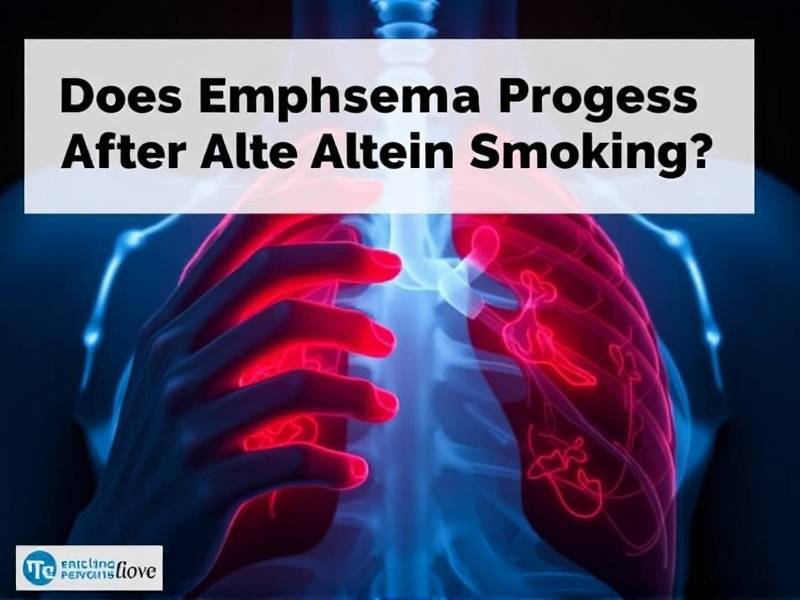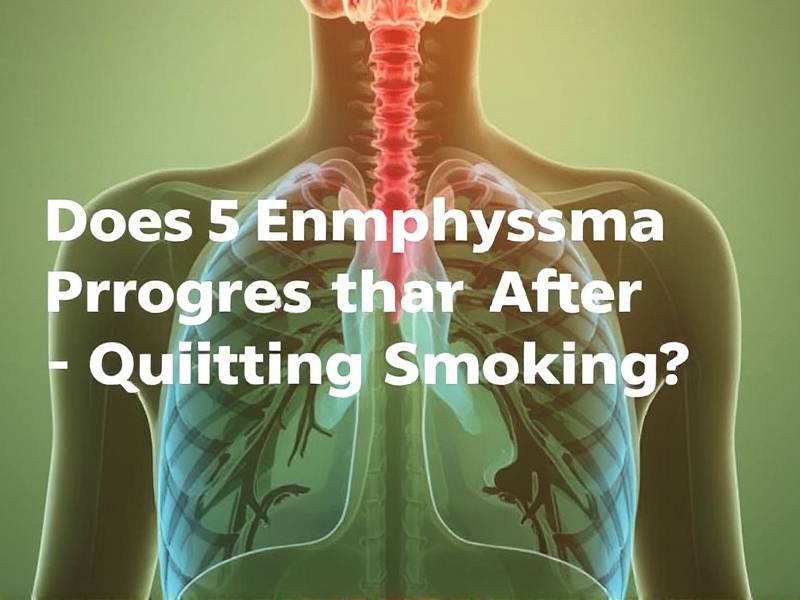Does Emphysema Progress After Quitting Smoking?
Understanding the Journey of Emphysema After Smoking Cessation
Introduction: Emphysema, a chronic lung condition characterized by damage to the air sacs in the lungs, is often associated with smoking. As individuals quit smoking, they often wonder whether their emphysema will worsen or improve. In this article, we delve into the progression of emphysema after quitting smoking and provide insights from medical experts.
Section 1: The Impact of Smoking on Emphysema Smoking is a primary cause of emphysema. When you smoke, your lungs are exposed to harmful chemicals that damage the walls of the air sacs over time. This leads to the enlargement and破裂 of these air sacs, reducing their ability to expand and contract effectively during breathing.

Section 2: The Healing Process After Quitting Smoking When you quit smoking, your lungs begin to heal gradually. The harmful chemicals are no longer introduced into your body, allowing your lungs to start repairing themselves. However, it's important to note that the healing process can vary from person to person.
Subsection 1: Immediate Benefits Within a few days after quitting smoking, you may notice immediate improvements in your lung function. The levels of carbon monoxide in your blood start to decrease, leading to better oxygenation and increased energy levels.
Subsection 2: Long-term Benefits As time progresses and you continue to avoid smoking triggers, you can expect long-term benefits for your lungs:
- Reduced inflammation and mucus production
- Improved lung capacity and breathing efficiency
- Decreased risk of respiratory infections
Section 3: Emphysema Progression After Quitting Smoking Research indicates that quitting smoking can significantly slow down the progression of emphysema. However, it's important to understand that emphysema is a chronic condition with varying degrees of severity. Here are some key points:
Subsection 1: Slowing Down Progression Quitting smoking can help slow down the progression of emphysema by reducing exposure to harmful chemicals that cause further damage.
Subsection 2: Stopping Further Damage While quitting smoking doesn't reverse existing damage caused by emphysema, it prevents further deterioration by eliminating the source of harm.
Subsection 3: Potential Improvement in Lung Function In some cases, individuals may experience improvement in their lung function after quitting smoking due to reduced inflammation and mucus production.

Conclusion: Quitting smoking is an essential step towards managing emphysema and improving overall lung health. While it may take time for noticeable improvements in lung function and symptoms related to emphysema, making this lifestyle change can significantly slow down disease progression and potentially improve quality of life for individuals affected by this condition. Consult with healthcare professionals for personalized advice on managing emphysema after quitting smoking.
